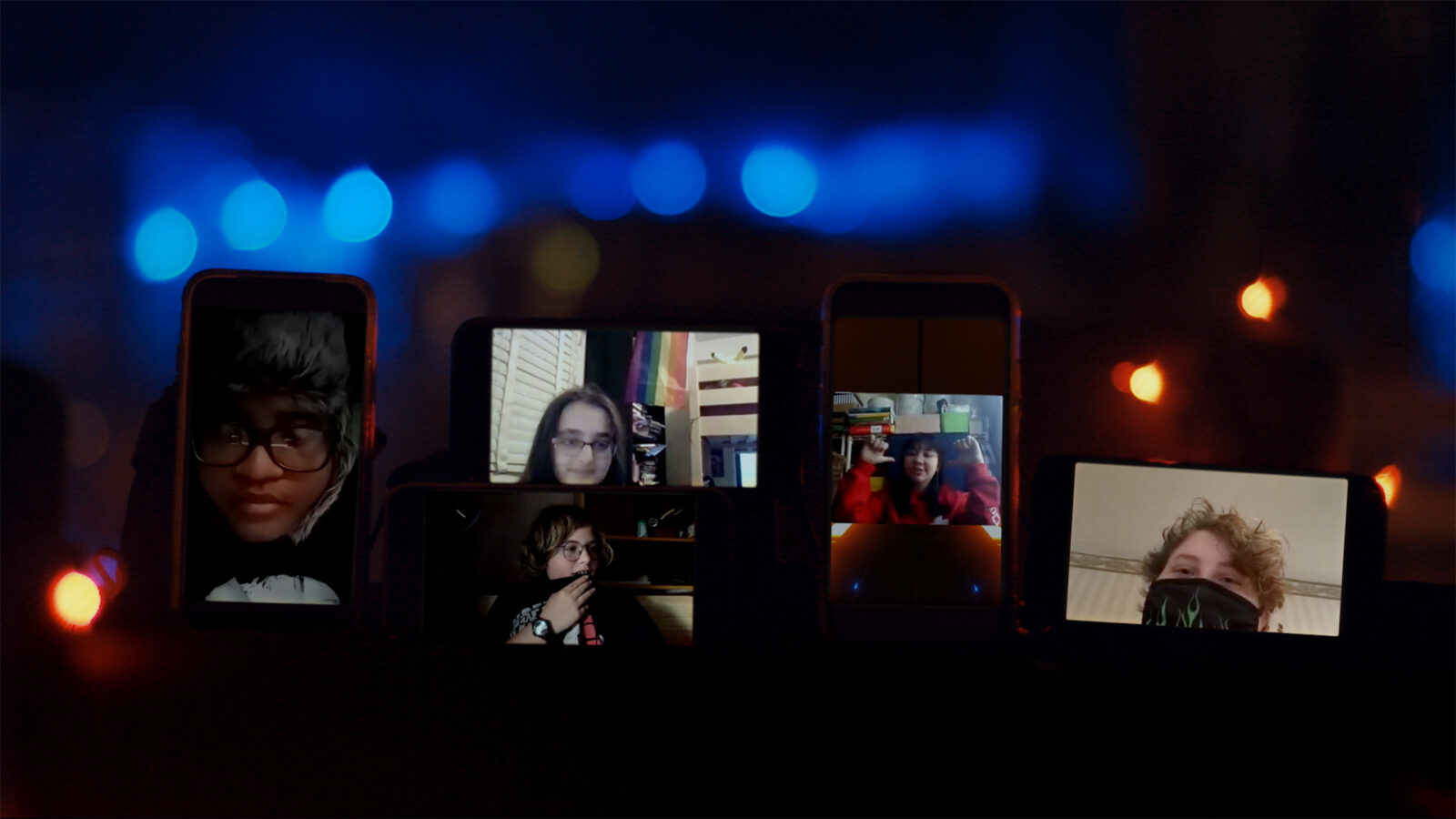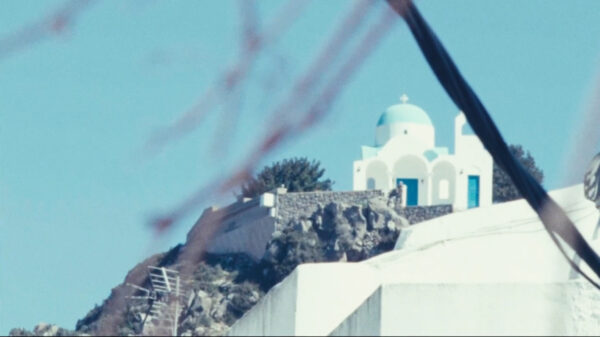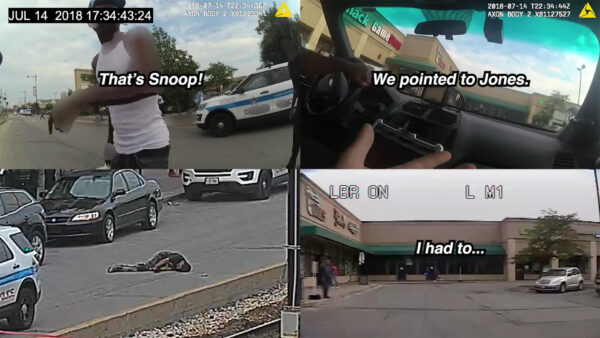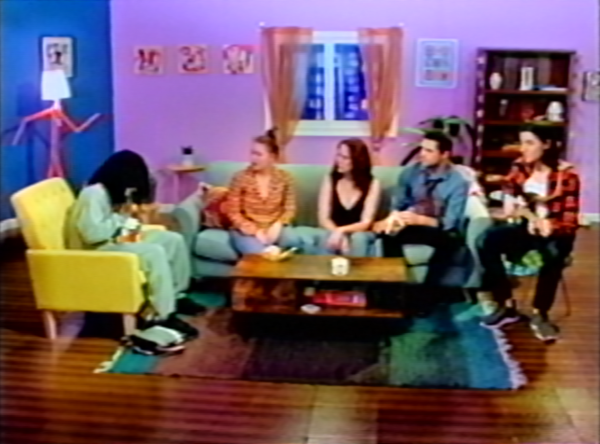Chasing Acceptance
Tracing Utopia
The aspirations of LGBTQIA+ youth is at the centre of Tracing Utopia as much as the generation gap between millennials and GenZ is.

Five New York adolescents make their vision of a safer world for LGBTQIA+ youth come alive via their online avatars. The GenZ’ers present their queer Utopia as a manifesto, pro-actively crafting their way into a better world. The director-writer duo Catarina de Sousa and Nick Tyson shed light on Asher, Chase, Mars, Jay, and Raphael: queer teens who love discussing and insist on more inclusive communities for their generation. During the film run, they interact through Zoom and Discord, as vis-à-vis meetings are only shown through footage filmed back when the filmmakers and teens met, shortly before the lockdown changed the game’s rules.
As the protagonists in this research documentary, they are also credited as screenwriters, marking the collaborative aspect of their endeavour. De Sousa and Tyson treat their conversation partners as equals rather than perceiving them as a focus group, illustrating their tight and friendly bond with them before the filming. All of them have become somewhat involved in each other’s on-and-off-line realities, resulting in one of them even calling in from a physiotherapist’s gym.
Tracing Utopia, deliberately or unintentionally, is also about the generation gap between millennials and GenZ. De Sousa and Tyson have enthusiastically thrown themselves into a GenZ universe where teenagers are more woke than they ever were at that age. For the teens, Minecraft is a video game, not Hitler’s prison memoir (not so long ago, this misunderstanding was trending). Tyson and De Sousa understand the gist of Minecraft (a bizarre marriage of Sims and Lego for modern youngsters) and the significance it carries for the group.
Asher, Chase, Mars, Jay, and Raphael’s wishes are solid and have a precise aim: tackling gender segregation, ending deadnaming, making therapy more accessible, creating queer hubs in their neighbourhoods, and introducing LGBTQIA+ studies in schools as early as possible. However, the foundation of their “Queer Utopia” is a conceptual one: a need for safe(r) spaces. Enter Minecraft, their escape and fictional opportunity to build a desirable environment for each to thrive. Bowie’s Life on Mars and Lemon Demon’s Touch-Tone Telephone share the honour of serving as their anthems. Finding a resort in a virtual and adaptable space is a coping mechanism that is less practiced among my fellow millennial peers. But GenZ might be on to something. Their avatars already inhabit the utopian world others dare to dream of. What reality fails to provide, their imagination deems possible.
This need for a safe environment tickles one’s curiosity. Have these teenagers grown up in a hostile community that is not accepting of their queerness? The film does not provide answers to this. But in all fairness, it neither asks the question to begin with, opting to focus on the fivesome’s thirst for action, keeping their background stories unexposed—only Asher hints towards his parents’ struggle to acknowledge his pronouns. Not dwelling on the past is a clever and progressive approach, yet a little insight into what has brought them here could have been beneficial. Not to pry but to better understand their need for a safe(r) space as the central axis in their manifesto.
Regardless, their personalities shine through the choices made when constructing their virtual Utopia. By merging each preference, they have created an imaginative world with a queer centre (per Raphael’s wishes), an animal shelter (Chase), endless forests which nurture the connection between humans and nature (Jay), and a lemon-lime greenhouse filled with bees (Mars). In addition, Mars speaks about video games offering non-binary and gender-fluid characters, therefore normalising different gender identities online. Together, they participate in the Black Lives Matter and LGBTQIA+ protests. In their shared Minecraft room, they screen 8mm of protest footage, linking past activism, present-day reflections, and a hopeful outlook. Switching time perspectives goes hand in hand with the mix of different visual media.
By blending diverse techniques—Zoom call recordings, video game graphics, and performance elements—the film aspires to find common ground with its main characters. Given the last (almost) two years the film industry has endured, it is praiseworthy that De Sousa and Tyson have maneuvered between the lockdown obstacles and technical possibilities in making Tracing Utopia. The screen captures feel real, as if De Sousa and Tyson’s camera were inside this fictional Minecraft world. Despite the feel-good atmosphere and technical efforts, it does not quite come together as one integral piece—more a crossbreed of a Zoom call and a video installation, less so a film.
Still, Tracing Utopia leaves a hopeful aftertaste, as these youngsters are keen to take action even through curating their fantasies on a computer. If this Utopia doesn’t work out, rest assured they have a plan B.






There are no comments yet, be the first!